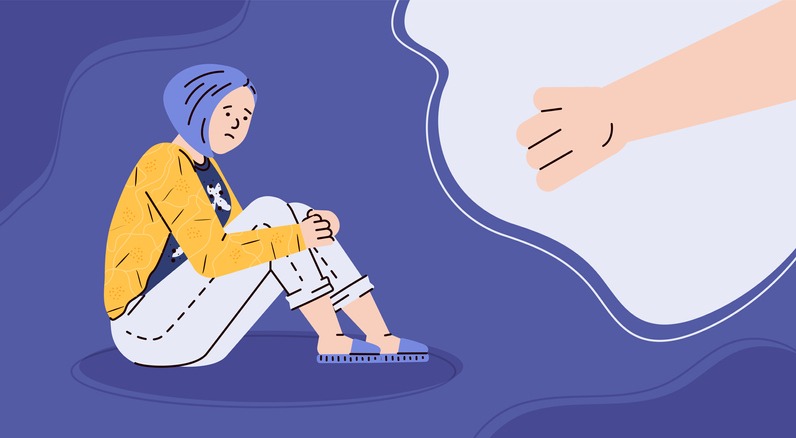
Information on the impact of suicide and how employers can best support their staff through preventative and postventative measures
CREDIT: This is an edited version of an article that originally appeared on NHS Employers
The rates of deaths by suicide are climbing across the world:
- Over 700,000 people take their own life each year – that’s one person every 40 seconds (The World Health Organisation, 2021)
- 1 in 15 people attempt suicide (Champion Health, 2022)
- Males aged 45-49 have the highest suicide rate (Samaritans)
Suicide does not discriminate and affects our NHS staff:
- Doctors are twice as likely to take their own lives compared with people working in other professions.
- Nurses are four times as likely to take their own lives than people working in any other profession in the UK.
- Female nurses are more likely to take their own lives than their male counterparts.
According to Champion Health, the current cost of living crisis has increased financial pressures on staff, and employees experiencing financial stress have been found to be twice as likely to experience thoughts of suicide or self-harm.
Suicide is preventable and employers play a crucial role in suicide prevention. People in work spend about one third of their lives at their place of employment. Colleagues and line managers can provide an important social and emotional support network, built on shared experiences.
In 2022, the Workplace Health Expert Committee (WHEC) published their work-related suicide evidence review. WHEC’s reports cover evidence reviews and position papers, giving their independent expert opinion on key topics for workplace health.
Postvention
Alongside a strong organisational suicide prevention strategy, it is vital that employers include a suicide postvention strategy into their management of the crisis, supporting those staff affected by suicide and experiencing trauma, as well as those experiencing bereavement due to the death by suicide of a colleague or loved one.
The NHS Confederation, NHS Employers, NHS England and Samaritans have developed a new postvention toolkit, aimed at helping NHS organisations develop a process for managing the impact of an employee suicide on colleagues.
This practical toolkit provides an overview of how you might roll out a postvention process in your own workplace, and is particularly useful for staff in human resources, occupational health and health and wellbeing roles.
How can organisations address the issue?
Mental health champions
By implementing mental health champions into your organisation, you can ensure there is a first line of support and signposting available for your staff. Having a supportive conversation at the right time can often prevent a tragic loss. Ensuring that the knowledge and experience of your champions are up to date and they are confident to face potentially difficult scenarios can help ensure an effective service. Raise their profiles by embedding them into the employee induction process and enabling them to take part in staff network conversations, it’s important that staff are aware of who they can contact if they need support.
Upskill your line managers
Ensure your line managers have the right training and skills to spot signs of suicidal thoughts and effectively signpost to appropriate avenues. Read about how you can upskill your managers to support the mental health of your staff. Encouraging compassionate leadership can help staff open up and beat the stigma around mental health conversations at work.
Resources, tools, and training
Support available for employers
- Postvention guidance for the ambulance service – Association of Ambulance Chief Executives (AACE)
- Suicide prevention in ambulance services – Association of Ambulance Chief Executives (AACE)
- Mental health at work blog – the blog explores ways that organisations can support their employees to prevent suicide and support those affected by it.
- National Suicide Prevention Alliance – an alliance of public, private, and voluntary organisations in England who are campaigning to reduce suicide and support those bereaved or affected by suicide.
- Responding to the death by suicide of a colleague in Primary Care: A postvention framework 2020. The report produced by The Louise Tebboth Foundation (LTF) and The Society of Occupational Medicine (SOM) provides suicide ‘postvention guidelines’. It includes proposals for timely and appropriate support to be put in place to help people and organisations recover.
- Samaritans latest suicide data – suicide statistics factsheets which includes data for nations across the UK and Republic of Ireland for your reference.
- Suicide awareness training from the Zero Suicide Alliance – educate your workforce with this free online 30-minute training session which aims to provide the skills and confidence to help someone who may be considering suicide by breaking stigma and encouraging open conversations.
- Suicide prevention toolkit – developed by the Business in the Community in partnership with Public Health England, this toolkit helps senior leaders, managers, HR and occupational health professionals embed suicide prevention strategies in health and wellbeing policies, guide the approach to supporting those at risk and act as a resource to provide support across your workforce.
Support available for staff at risk of suicide
- Bereavement support line – NHS staff have access to a confidential bereavement support line, operated by Hospice UK and free to access from 8am to 8pm, seven days a week, where they can speak to a fully qualified and trained bereavement specialist. Call 0300 303 4434.
- Campaign Against Living Miserably (CALM) – for men, call 0800 58 58 58 from 5pm to midnight everyday or visit the webchat page.
- Papyrus – for people under 35, call HOPELINE247 on 0800 068 41 41. Lines are open 24 hours every day of the year.
- Samaritans – for everyone, call the 24-hour helpline 116 123.
- Worried about someone else? See the Samaritan’s tips on how to support someone you’re worried about and Rethink’s advice on how to support someone with suicidal thoughts.
- Stay alive app – NHS and social care staff have free access to the Stay Alive app, which aims to provide help for people with existing mental health concerns, suicidal thoughts, and those struggling in self-isolation. It provides information to help colleagues stay safe, including advice for people concerned about someone else who may be considering suicide.
- Support after suicide partnership- ‘Help is at hand’ is a resource for people bereaved through suicide or other unexplained death, and for those helping them.
- Survivors of bereavement by suicide offers information of suicide postvention and supporting the bereaved.


Be the first to comment